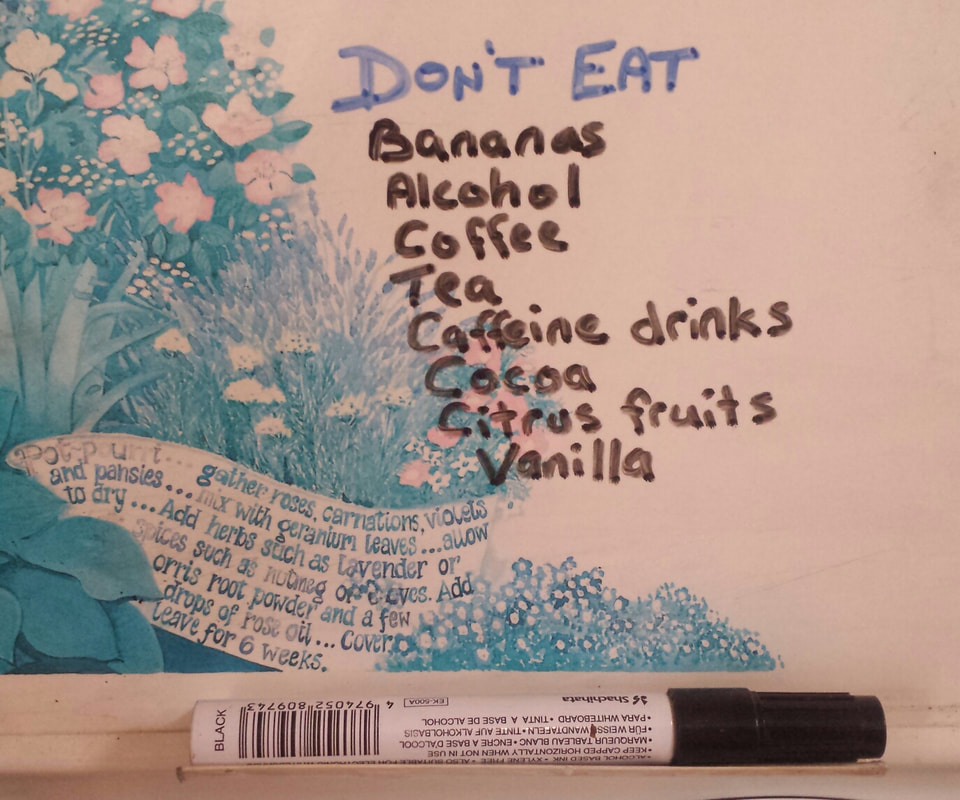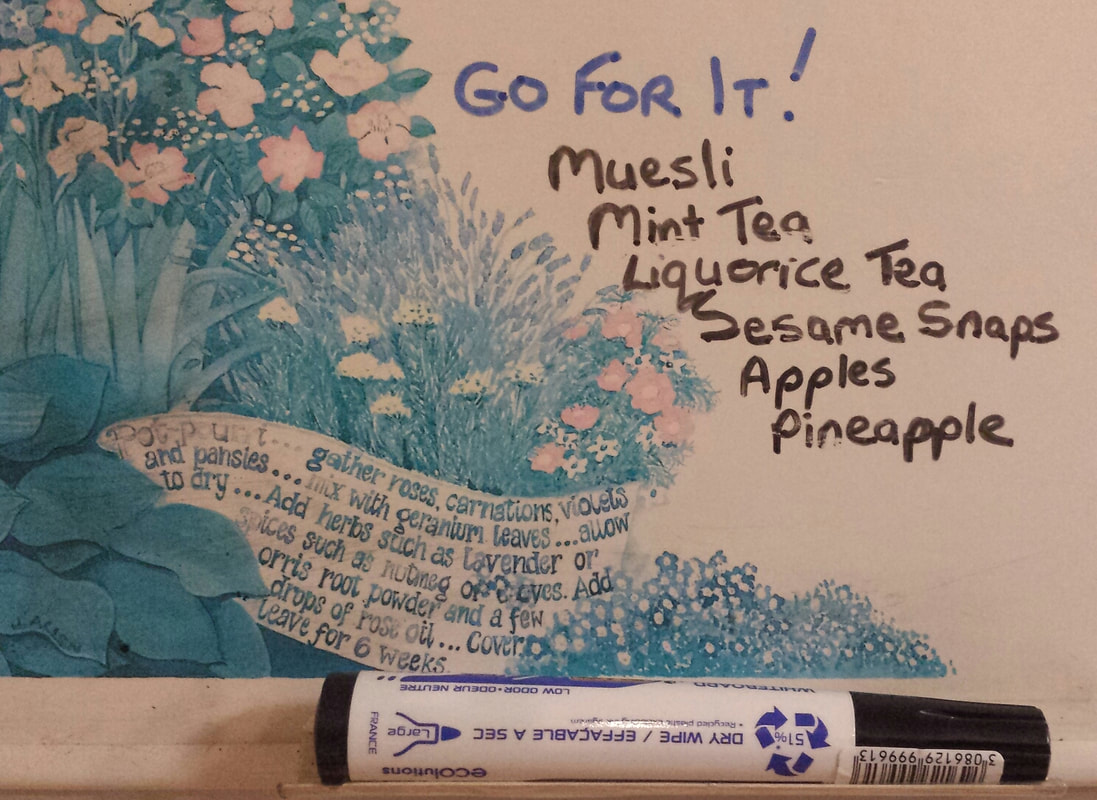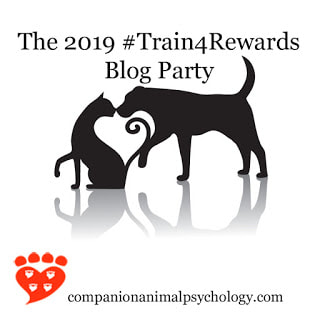I wrote the list of “don’t eat” things on my whiteboard so that every time I went to the fridge, I would see it and remember what not to touch. Seemed like a good idea at the time.
I enjoy my morning smoothie. The thought of no banana for two days began to morph from an inconvenience to a hurdle I didn’t know if I could clear. I hardly drink alcohol, but began to feel like a white wine with my main meal. I was concentrating so hard on avoiding all those restricted foods that it was making the limitations arduous and inconvenient. More so than they needed to be.
So I changed my perspective and instead of focusing on what I couldn’t eat, I went through my routine and switched out each forbidden food with something else. Here’s the really important part: I substituted it with something I liked just as much or more than the original food. That simple act vanquished the frustration of being disallowed my usual diet. Instead of a void I had the promise of a novel treat. I no longer missed my banana smoothie because the home-made muesli packed with all my favourite things took its place. I looked forward to breakfast now instead of mourning a dietary loss. Instead of coffee I looked forward to a warm, comforting liquorice tea that I had recently discovered and really enjoyed. This is another important point: It takes a lot of energy to fill a void. Planning in advance what would replace each food meant my routine could continue without duress. I’m a creature of habit, and habits are hard to break. It would have been a lot harder getting to breakfast time, bleary-eyed and tummy rumbling, and then trying to figure out what would fill my belly. If it had been all too hard, I might have even given up and decided at that minute that the diagnostic test wasn’t really important.
I erased the whiteboard “Don’ts” and replaced them with a list of “Go For It” items. Now trips to the kitchen were reminders of all the things I could have. The cravings disappeared, replaced with anticipation and enjoyment of new delights.
“Stop doing what you love. Good dog. Here’s a tiny piece of dried liver!”
The dog is likely to be frustrated as well, especially if the reinforcement you are giving is not comparable to the reinforcement obtained by the original behaviour.
You need to know what your dog really likes. What if I’d replaced coffee with warm water? I’d be dying to get back to coffee. As it is, I’ve actually cut down my coffee intake even though there is no need for me to avoid coffee any more. I actually prefer my new tea. The tea is also quicker and easier for me to make.
This is another crucial point; the new behaviour shouldn’t be harder for the dog to perform. If it is, the old behaviour may creep back.
Completely banning a dog doing something enjoyable without providing a desirable alternative can sometimes make the behaviours you are trying to stop even worse. Like my sudden cravings! A dog may still find ways to do them if they are highly reinforcing activities. Sure, you can fence off the garden to prevent digging. Dogs may often get through fences because it’s worth it to them to dig. Or they’ll find somewhere else to dig. It’s hard to fence off an entire garden. How much more satisfying for the dog to instead be directed to a digging pit you have created elsewhere full of amazing smells and tastes that are nowhere else in the garden? Instead of taking away all the shoes or baby toys a dog seems to love, leaving a barren land of chewlessness, introduce interesting and safe chew toys and treat dispensing toys to take their place. Instead of a prohibition against all blissful rolling, keep the lead on around stinky stuff and give complete freedom to roll on other surfaces.
I’ve done this last one with Zuri: she loved to roll but I preferred her not to roll in dead animals or mud because I often couldn't wash her straight after. She slept on my bed; get the picture? But she adored rolling. It also gave me great pleasure to watch her roll. So whilst I discouraged rolling in mud and stinky animals by putting her on lead or calling her away, I encouraged rolling on the beach sand and rolling on grassed surfaces – two places she routinely chose.
Note: she chose. So I knew she liked it and found it reinforcing.
It’s also easier for her to do because we had access to a lot more grass and beach sand than stinky, dead stuff! I also reinforced her with food for rolling on these surfaces. The rolling itself was already reinforcing for her; I just added another layer on top. I put it on cue (meaning I gave a signal for it to occur when asked for it) and we did it every walk. The sight of a manicured lawn and my slowing and turning towards it actually become the signal to roll. I didn’t have to call her away or use the lead as often in the vicinity of smelly things. They no longer held such an attraction. So it was a win-win situation: I didn’t have the extra cleaning work after walks and Zuri still got to engage in an activity she enjoyed.
Here's a video of Zuri's rolling bliss for your viewing pleasure. Email subscribers can view the video here: https://youtu.be/DiPSKW9cztc
I’m off to have a liquorice tea now.




 RSS Feed
RSS Feed